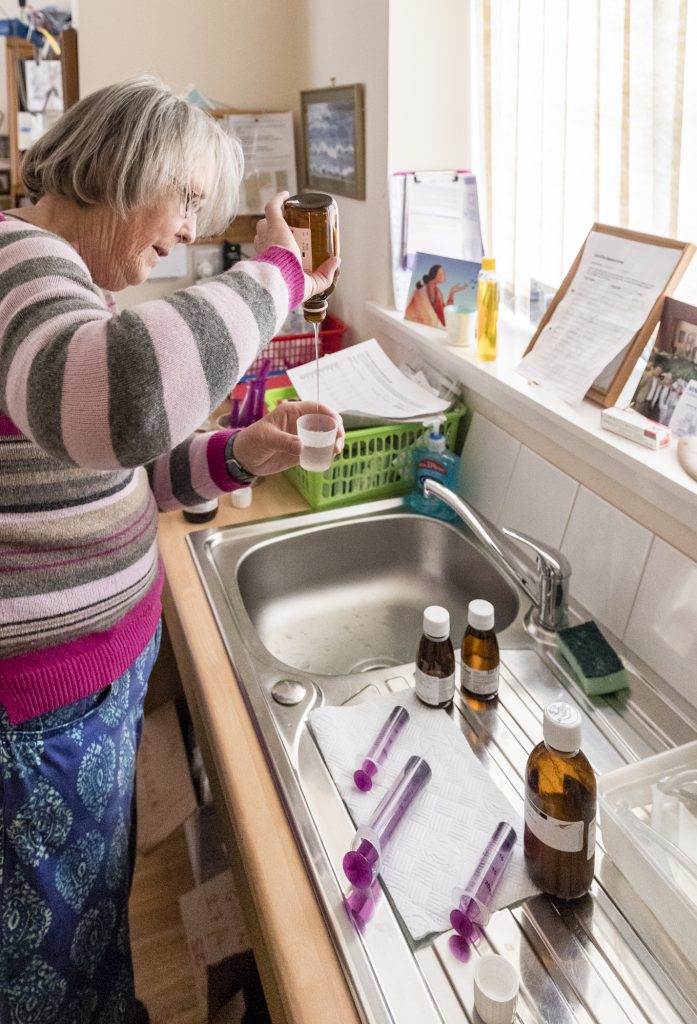What is MND
Find support
I have MND
I am supporting someone
Get involved
Research
About MND Scotland

 – by Colette McDiarmid, Policy Officer
– by Colette McDiarmid, Policy OfficerWhen I started my role as a Policy Officer at MND Scotland earlier this year I quickly understood that the starting point for providing advocacy support to people was simple; listen. I noticed that carers were often my first point of contact when they needed support and advice. The issues carers often have to deal with can be complex and overwhelming – and often they have very little experience of dealing with all the professionals who become involved in a loved one’s care.
Research often shows that carers experience social isolation and loneliness but very little is known about the experiences of carers of people with terminal illnesses like MND. I didn’t know what is was like either – and I didn’t want to assume. Marking Carers Week 2017, I decided to send out a survey to people who are caring for loved ones who have MND and ask them to share their experiences with us and, most importantly, find out how we could help.
Over the summer, we sent out carers surveys by email and post and received over 125 responses. In the responses, some carers highlighted difficulties they experience including little time to look after themselves, stress, lack of sleep and communication difficulties. The majority of carers said they spend most or all of their time caring and few have received any formal respite from their caring role. People also said they have experienced problems accessing social care packages with very few people receiving overnight support from external agencies. Carers also highlighted that external carers had a lack of understanding about MND and how it affected an individual.
The survey also highlighted that the financial impact is also huge for families affected by MND, for example, working age families lose not only the income of the person with MND, but that of the carer who often has to give up work or reduce hours to allow them to care for their loved one. Accessing Carers Allowance is also difficult for those who continue to work, as they need to care for 35 hours per week to qualify.
We got in touch with several of the carers who responded to the survey and appeared to be struggling, to offer help and support. Please do get in touch if you would like support for yourself and/or your family. We used findings from the survey to help us contribute to Scottish Government consultations on the implementation of the new Carers Act. The survey findings also helped shape our new Advocacy Service, due to be launched early next year, as well as our policy and campaigns work for the year ahead.

The good news is that carers are being more widely recognised for what they do. Changes in legislation in Scotland from April 2018 will mean that local authorities will have a duty to ensure that carers are given the support they need through the Carers Scotland Act 2016. Adult and Child carer support plans will be drawn up by local authorities to ensure carers are receiving the help they need. The Act also includes provisions for emergency and future planning, assessing the carer’s personal outcomes, how much care the carer is willing and able to provide, and whether they could be given respite. Carers will also become more involved in decisions about their loved one and what impact these decisions can have on them too.
The additional support for carers is welcome and we will be following these changes closely and ensuring that carers of people with MND are aware of the support they can access and ensure they are receiving this support from local authorities.
If you would like to provide feedback on a more regular basis, why not join our group MND Voices? MND Voices in Scotland aims to bring together the views of people affected by MND, to inform and contribute to the work of MND Scotland. This can be achieved in a variety of ways including awareness raising, campaigning and contributing to the development of publications, information and new services.
We want to improve the lives of people affected by MND, by ensuring that everything we do is informed by their experience. We need your feedback to help us do just that.
Getting involved can be done from the comfort of your own home by email, online, phone or post.
If you would like to get involved, please do, I would love to hear from you. To find out more, contact me at colette.mcdiarmid@mndscotland.org.uk or call me on 0141 332 3903.
Sign up
for newsletter
Get the latest news and events straight to your inbox.
You can help create a world without MND